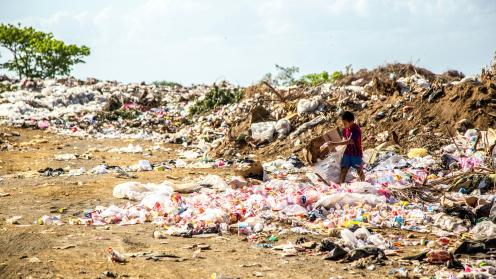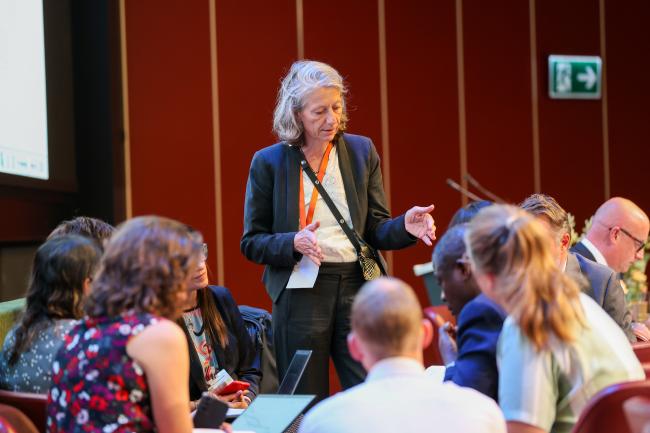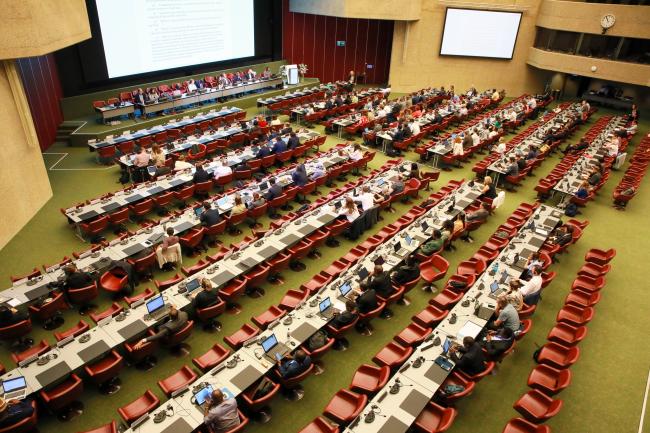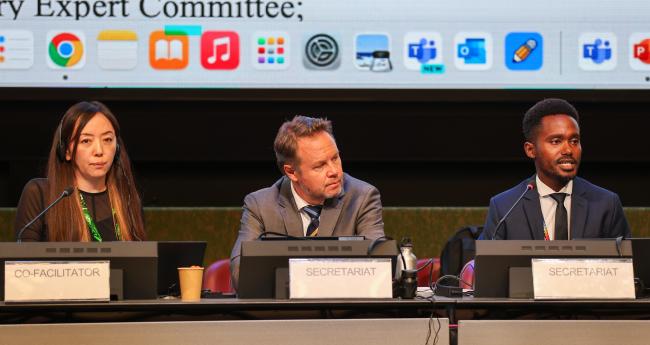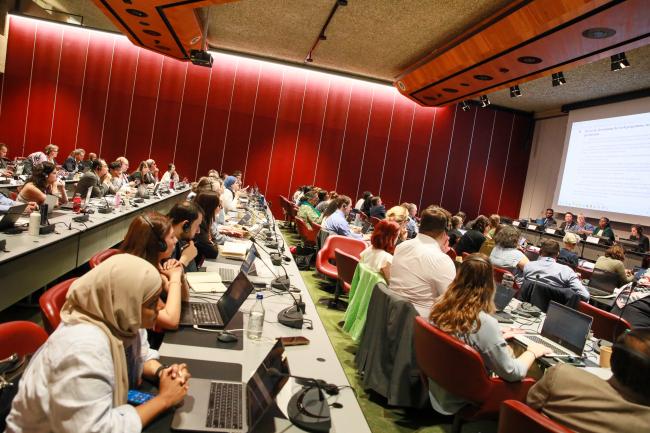On Tuesday delegates debated fundamental questions: what issues will the panel work on and how will it undertake this work? This meeting is setting out the architecture for a panel that will bring scientists and policymakers together to reduce the deaths, illnesses, and environmental burdens of pollution. These burdens are ever changing as new chemicals and waste streams emerge and their uses and trade – and our understanding of these dynamics – evolve. Flexibility and responsiveness may need to be hallmarks of the panel for chemicals and waste pollution.
Want to dig deeper into today's talks? Read the full Earth Negotiations Bulletin daily report.
On the question of what, discussions included how the panel will select the issues to work on. Delegates debated if governments alone, or if other stakeholders or other international bodies, like the Global Framework on Chemicals, could suggest topics for the panel to consider. There were many suggestions that lengthened the list of information that could be included in a proposal, from the issue’s relevance to its relation to the panel’s scope, to the availability of scientific information. A few worried this list had grown so much it could be unworkable for countries in the Global South, which often face disproportionate risks of pollution, so that they will not be able to submit complete and convincing proposals.
On the question of how, there were discussions on the panel’s institutional arrangements and future policies. Institutional arrangements encompass various bodies that will comprise the panel, from a governing body to subsidiary bodies like the interdisciplinary expert committee, and could provide inputs from the scientific community. Once agreed, these types of arrangements often prove difficult to change, so negotiators will go through this text carefully during the week.
A policy attracting considerable attention is on conflict of interest. There were several debates on this, including who the policy should apply to, how to define conflict of interest, and what types of interests need to be declared. Many noted the importance of this issue for safeguarding the panel’s independence and legitimacy.
Discussions on the rules of procedure, included whether, and on what issues, voting could be possible. Some said science should not be subject to a vote, but others noted that some disagreements might emerge on how to relate the panel’s findings to policy makers, not on the science itself.
All ENB photos are free to use with attribution. For this event, please use: Photo by IISD/ENB | Mike Muzurakis
To receive free coverage of global environmental events delivered to your inbox, subscribe to the ENB Update newsletter.
